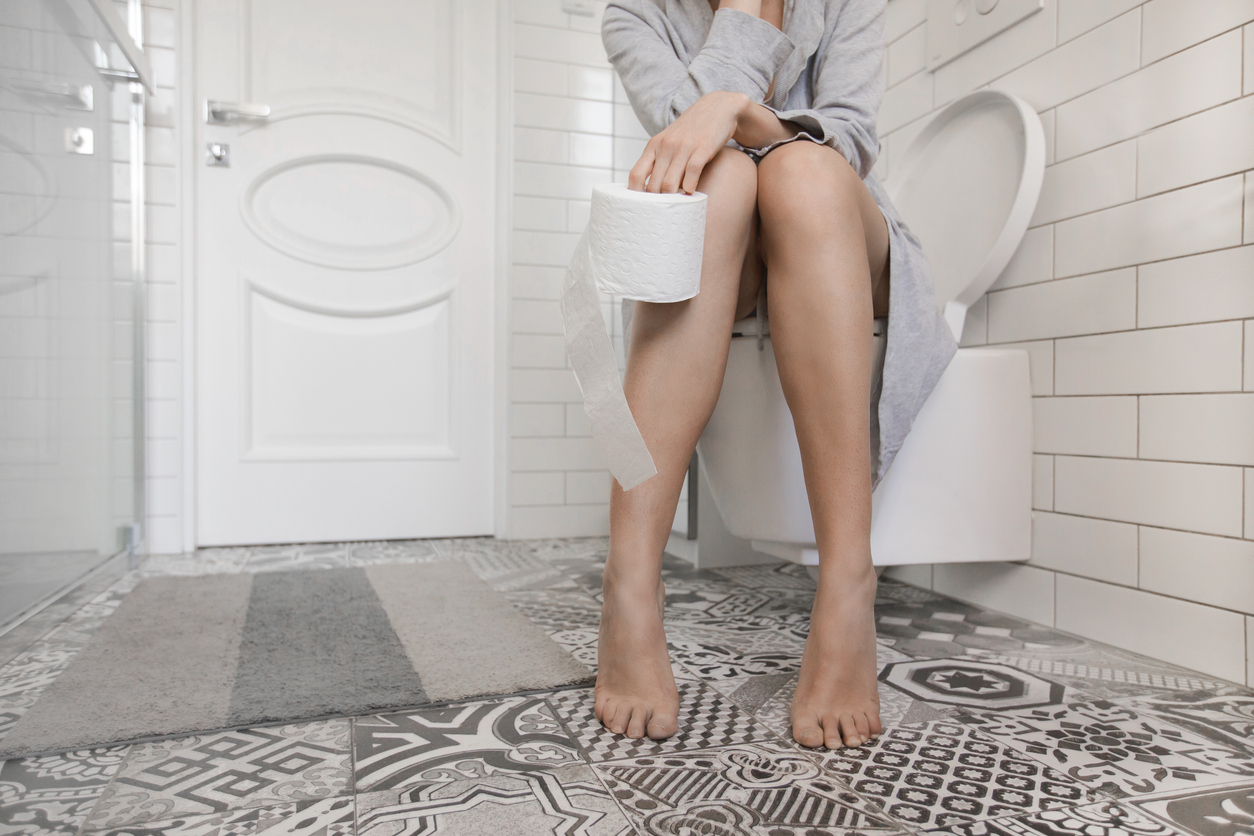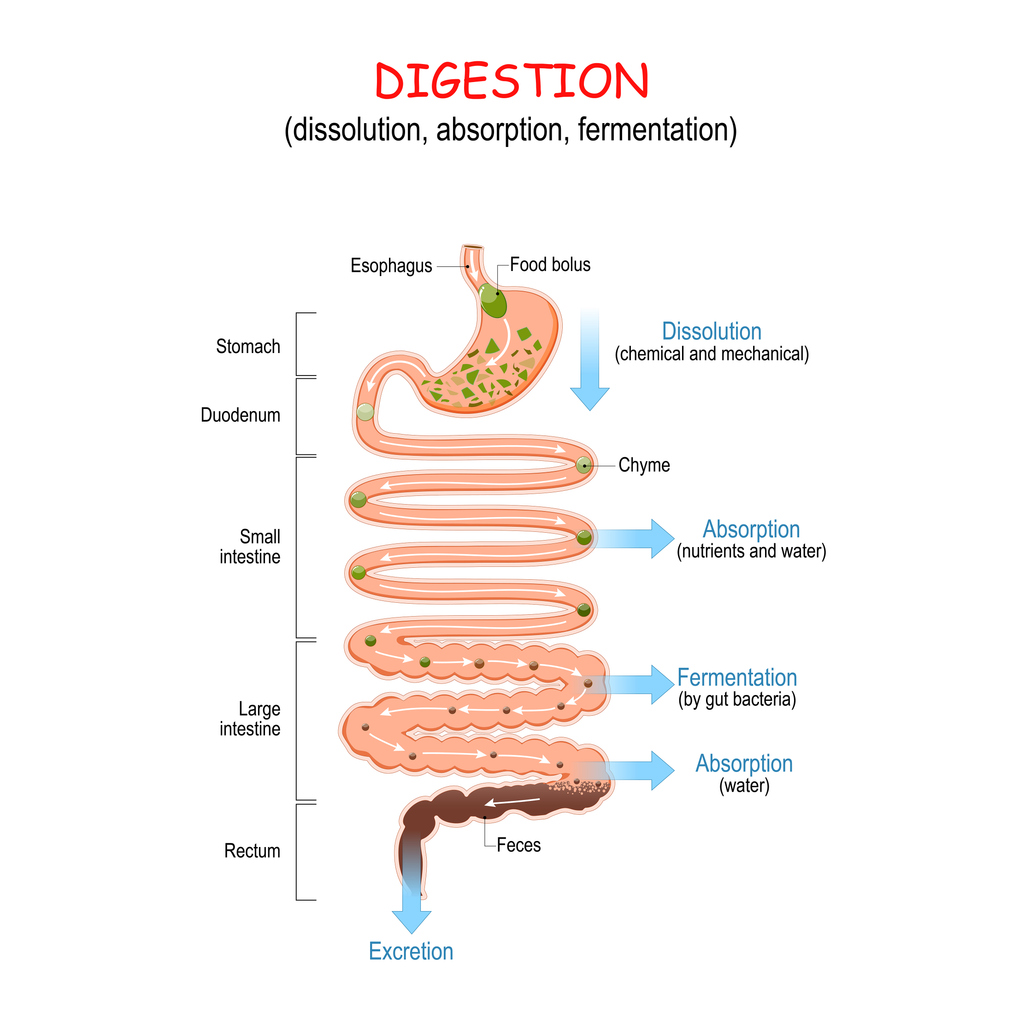
Relieving Constipation with Food and Fitness
Constipation is one of the most common digestive concerns in the United States, affecting people of all ages. Nearly everyone experiences it occasionally, but when constipation becomes frequent or severe, it can interfere with daily life and cause unnecessary discomfort. Fortunately, many cases can be improved — or even prevented — by making adjustments to your diet, activity level, and daily habits. By understanding how food, fluids, and exercise impact digestion, you can take important steps toward better bowel health and long-term relief.
What Exactly is Constipation?
Constipation occurs when bowel movements become less frequent or more difficult to pass. While it varies from person to person, most experts define constipation as having fewer than three bowel movements per week. Common signs of constipation include:
- Straining to Pass Stool: Difficulty pushing stool out during bowel movements
- Hard, Dry, or Lumpy Stools: Stool that is firm and difficult to pass
- Sensation of Incomplete Evacuation: Feeling like you haven’t fully emptied your bowels
Abdominal Bloating or Discomfort: Gas, cramping, or fullness in the abdomen
Occasional constipation is often triggered by dietary changes, dehydration, stress, or travel. Chronic constipation, however, may require medical attention, especially if it causes ongoing pain or interferes with daily activities.

The Role of Diet and Fiber
What you eat directly affects how smoothly food moves through your digestive system. A diet low in fiber and fluids is one of the most common causes of constipation. Fiber adds bulk to stool and helps it pass more easily, and there are two key types:
- Soluble Fiber: Absorbs water and forms a gel-like consistency, softening stool. Found in oats, apples, beans, and carrots.
- Insoluble Fiber: Adds bulk and helps food move more quickly through the intestines. Found in whole grains, nuts, seeds, and many vegetables.
A balanced diet should include both types of fiber to maintain healthy digestion.
Fiber-Rich Foods to Try:
- Fresh Fruits: Apples, pears, raspberries, and prunes
- Vegetables: Broccoli, leafy greens, carrots, and Brussel sprouts
- Whole Grains: Oats, quinoa, brown rice, and whole wheat bread
- Legumes: Lentils, chickpeas, and black beans
- Nuts and Seeds: Almonds, flaxseeds, and chia seeds
Introduce fiber gradually to avoid gas or bloating, and always increase water intake alongside it.
Hydration and Probiotics
Fluids are just as essential as fiber for preventing constipation. Water helps soften stool and keeps it moving through the intestines. Aim for at least eight 8-ounce glasses per day, and remember that herbal teas, soups, and water-rich fruits and vegetables (like cucumbers and watermelon) can also contribute to hydration. A healthy gut microbiome also supports regular digestion. Probiotic-rich foods such as yogurt, kefir, sauerkraut, kimchi, and miso can encourage a balanced intestinal environment, which may help reduce constipation.
Exercise and Lifestyle Habits
Physical activity stimulates intestinal contractions, helping stool move more efficiently. Even modest exercise can improve bowel regularity.
Exercises That Help:
- Walking: A brisk 20- to 30-minute walk daily can activate bowel movements
- Yoga: Twists and forward bends gently massage the intestines
- Strength Training: Core exercises support abdominal pressure for easier bowel movements
- Aerobic Exercise: Swimming, cycling, or jogging increase circulation and stimulate digestion

In addition to exercise, daily habits play a role in maintaining regularity:
- Respond Promptly to the Urge to Go: Delaying can make stool harder and more difficult to pass
- Establish a Routine: Try using the bathroom at the same time each day, often after meals
- Take Your Time: Allow enough time for bowel movements without distractions
- Consider Posture: Elevate your legs with a small footstool to align the colon
- Limit Processed Foods: High-sugar, fried, or processed snacks can worsen constipation
When to Seek Medical Care
While lifestyle changes relieve constipation for most people, persistent or severe constipation may indicate a more serious issue. Conditions that can cause chronic constipation include:
- Irritable Bowel Syndrome (IBS): Causes chronic constipation, diarrhea, or both
- Hypothyroidism: Low thyroid function can slow bowel movements
- Diabetes: High blood sugar may affect intestinal function
- Neurological Disorders: Parkinson’s disease or multiple sclerosis can disrupt digestion
- Medication Side Effects: Painkillers, iron supplements, or certain antidepressants may cause constipation
Warning Signs That Require Medical Attention:
- Blood in Stool: Visible or hidden blood
- Unexplained Weight Loss: Losing weight without trying
- Severe Abdominal Pain or Cramping: Intense or persistent discomfort
- Sudden, Lasting Change in Bowel Habits: Changes lasting more than two weeks
Treatment Beyond Lifestyle
If diet, fluids, and exercise do not fully relieve your constipation, your doctor may recommend other treatments, including:
- Over-the-Counter Options: Fiber supplements, stool softeners, or gentle laxatives can help, but should not be relied on long-term without medical guidance.
- Prescription Medications: Medications that increase intestinal fluid or muscle activity may be necessary in some cases.
- Biofeedback Therapy: Retraining the pelvic floor muscles can improve bowel function for those with dysfunction.
- Advanced Testing: Diagnostic procedures such as colonoscopy or motility studies help identify underlying causes if constipation persists.

Maintaining Digestive Health
Fortunately, constipation is often manageable with relatively simple lifestyle changes. By consistently eating a high-fiber diet, staying well-hydrated, engaging in regular exercise, and practicing healthy bathroom habits, you can significantly improve bowel regularity and overall digestive wellness. Everyone’s digestive system is unique. What works for one person may not work for another, so it’s important to find the combination of dietary, exercise, and lifestyle strategies that best support your body. If constipation continues despite your best efforts, a gastroenterologist can help identify underlying causes and recommend personalized treatments.
Contact Us
Constipation can be uncomfortable and disruptive, but it doesn’t have to dictate your daily life. Maintaining a high-fiber diet, drinking enough water, staying active, and adopting healthy bathroom habits, you can often achieve lasting relief and support overall digestive health. However, when lifestyle changes alone aren’t enough, seeking professional guidance is key. At Gastroenterology of Greater Orlando, our specialists offer personalized evaluations and treatments tailored to your unique needs, helping you identify underlying causes and develop an effective plan for relief. Don’t wait to take charge of your digestive wellness — schedule an appointment with Gastroenterology of Greater Orlando today and start your journey toward easier, healthier digestion.